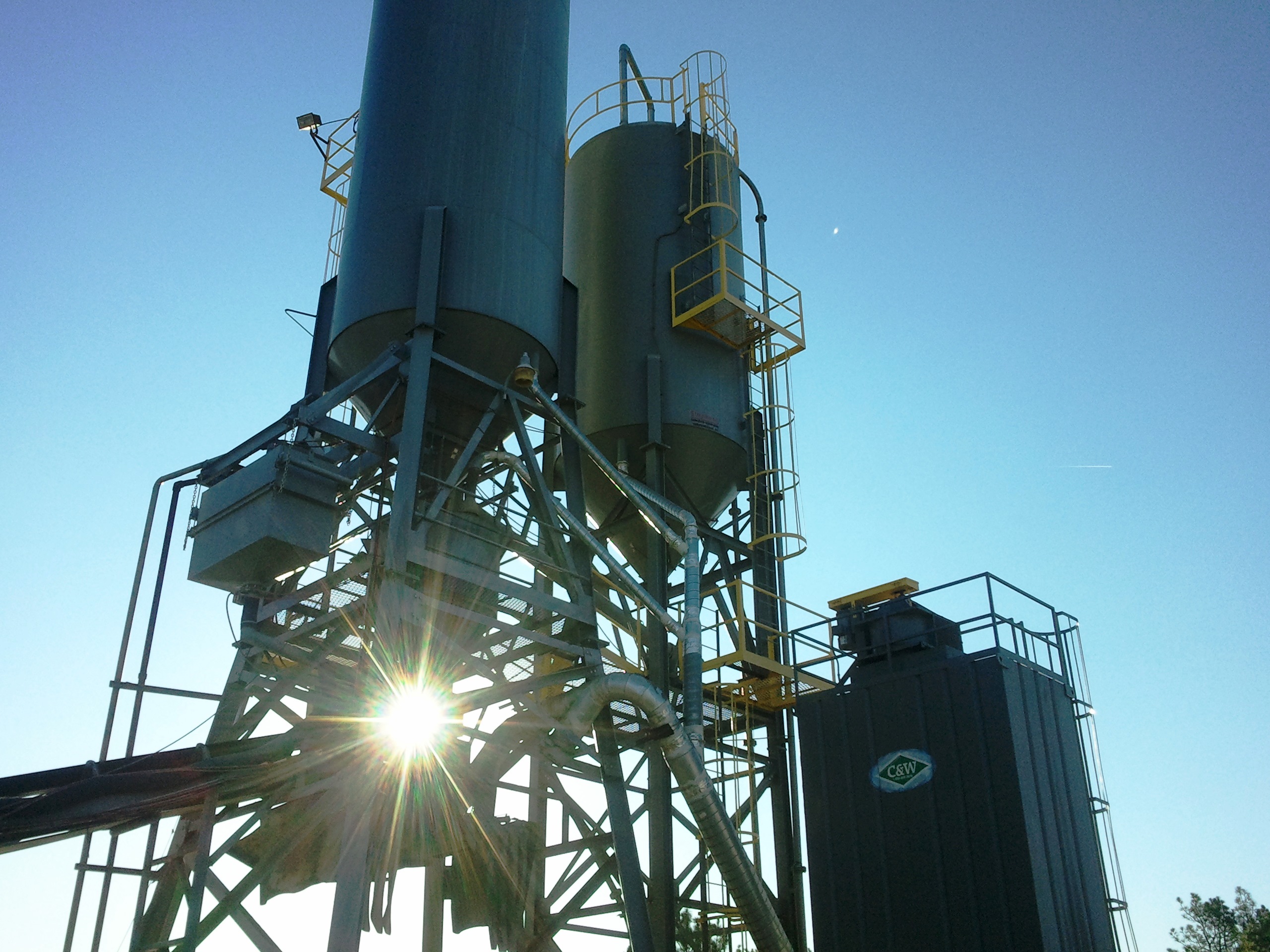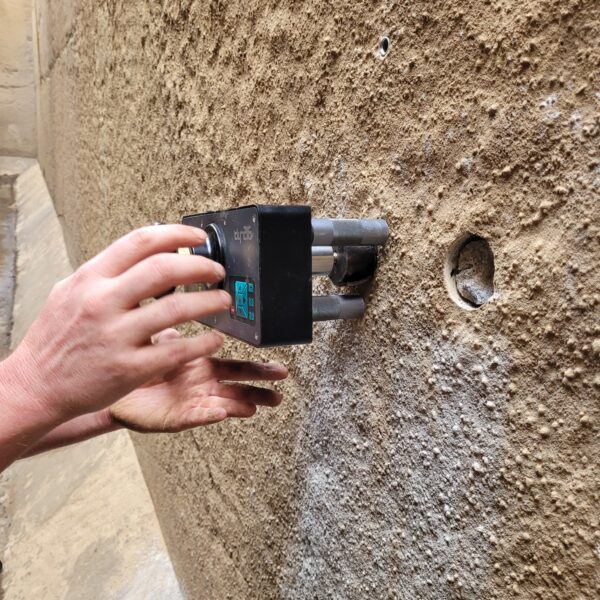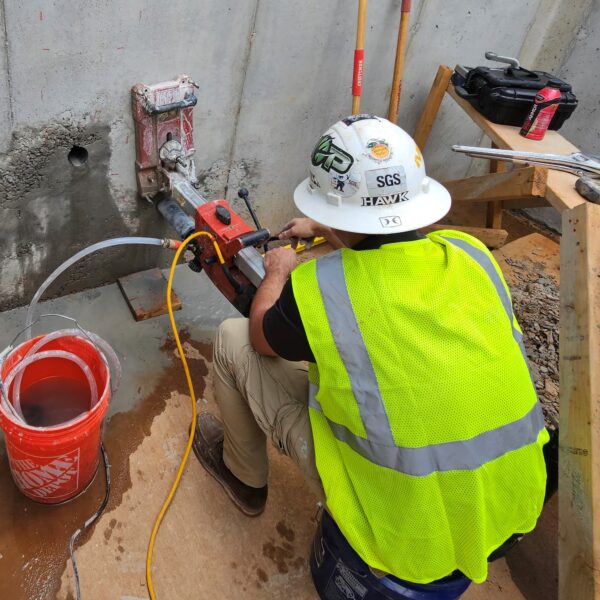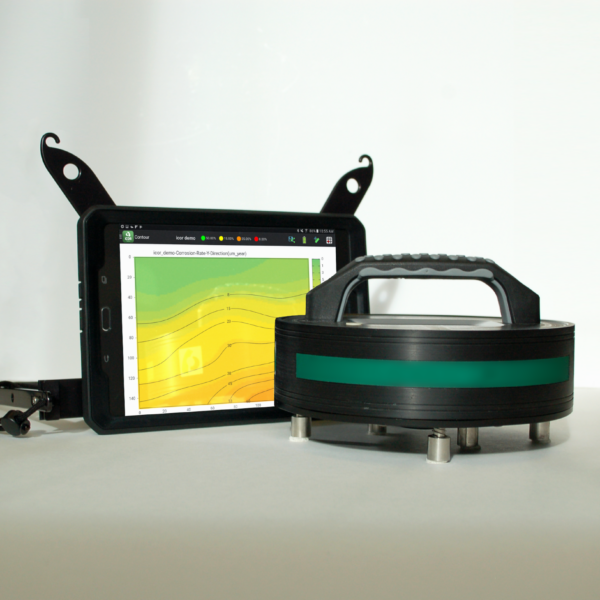
Engineering & Consulting
Field Services for On-site Concrete Evaluation
On-site evaluations are often necessary and offer you valuable insights into the condition, integrity, and strength of concrete structures without causing damage. These services, often provided by specialized firms or engineers, utilize various techniques to assess concrete integrity in real-world settings without requiring physical alteration. SGS TEC provides field services for the following:
- Anchor Load Testing
- Bond Strength Testing
- Coefficient of Friction Testing
- Compression Strength and
Durability Evaluations – ASTM C42 - Concrete Construction Special Inspections
- Concrete Core Sampling
- Concrete Sounding – ASTM D4580/D4580M
- Corrosion Evaluation and Assessment
- Crack Evaluations
- Ground Penetrating Radar (GPR)
- Handrail Load Testing
- Impact Echo
- Moisture Vapor Transmission Testing
ASTM E96, F1869, F2170 - Non-Destructive Evaluations
- Rebar and Steel Sampling for Tensile Properties
- Rebar Location and Mapping
- Roof Anchor Load Testing
- Skid Resistance
- Static Dissipative Evaluations
- Structural Monitoring
- Ultrasonic Pulse Velocity (UPV)



Key methods for in place non-destructive concrete evaluation
Assessment of In-Situ Strength by Coring: Provides direct and reliable data on the actual compressive strength of the existing concrete, allowing engineers to assess the structural integrity accurately.
Pull-Off Test: Involves applying a controlled force to a bonded area and measuring the stress required to detach the concrete layer, assessing the bond strength between layers.
Pull-Out Test: Determines the force required to pull an embedded or surface-mounted anchor, reinforcing bar, or other embedded materials out of the concrete, assessing bond strength.
Ultrasonic Testing: Utilizes high-frequency sound waves to determine concrete thickness, detect cracks, voids, and assess the uniformity of concrete structures.
Ground-Penetrating Radar (GPR): Uses electromagnetic radiation to locate embedded objects, map rebar and reinforcements, and identify variations in concrete composition or thickness.
Impact-Echo Testing: Involves analyzing sound waves generated by impacting the surface to evaluate the depth and condition of concrete elements, detecting flaws or delamination.
Electrical Resistivity Test: Assesses the moisture content, permeability, and potential for corrosion within concrete by measuring its electrical properties.
Moisture Vapor Transmission Testing: Moisture vapor transmission testing on a concrete slab is a critical evaluation process used to assess the rate at which moisture vapor moves through a concrete surface. This testing is crucial in various industries, particularly in construction and flooring, as excessive moisture can cause damage, affect adhesion, and compromise the integrity of subsequent flooring installations.
Non-destructive field services offer several advantages
- Preservation of Structures: By avoiding physical damage, these methods allow for assessments without compromising the integrity of the concrete, preserving the structure’s longevity.
- Cost-Efficiency: They provide cost-effective means of evaluating large areas or structures without the need for extensive demolition or intrusive testing.
- Real-time Evaluation: Field evaluations offer immediate results, allowing for prompt decision-making and quicker assessment of structural conditions.
- Safety: These methods are non-invasive, reducing safety risks associated with traditional destructive testing.
These evaluations are crucial for assessing the condition of concrete in various structures such as buildings, bridges, dams, and roads. They enable engineers and inspectors to identify potential issues, plan maintenance or repairs, and ensure the safety and durability of concrete structures over their lifespan.
Contact an expert today to learn more or discuss customized services for your project.
